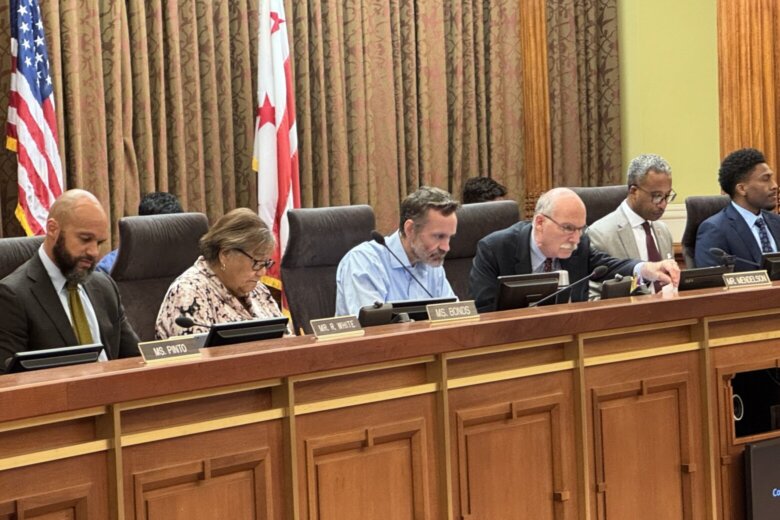Impact of Political Uncertainty on Thailand’s Economic Policies and Sustainable Development Goals
Disruption to Key Policy Initiatives and SDG Alignment
The ongoing political uncertainty in Thailand poses significant risks to the advancement of major government priorities, including the 20-baht flat fare electric train policy. This initiative, aligned with Sustainable Development Goal (SDG) 11: Sustainable Cities and Communities, relies heavily on the passage of critical legislation such as the Mass Rapid Transit Authority (MRTA) bill and the Rail Transport Act. Delays in legislative approval threaten to stall progress on sustainable urban transport solutions.
Furthermore, the government’s 157-billion-baht economic stimulus package, which supports SDG 8: Decent Work and Economic Growth, faces potential disruption. Approximately 40 billion baht remains unallocated, and while the caretaker government may approve these funds under the current fiscal year budget, any leadership change before 30 September 2025 could impact disbursement and project continuity.
Private Sector Concerns Amid Prolonged Political Uncertainty
The private sector has voiced apprehension regarding delays in budget implementation and the continuity of development projects, which are essential for achieving SDG 9: Industry, Innovation, and Infrastructure. International negotiations, including those with the United States under the Trump administration, risk being compromised due to leadership vacuums.
- Reciprocal Tariff Negotiations with the United States
Urgent progress is required in tariff negotiations to prevent import tariffs of up to 36% on Thai goods. Failure to maintain authorized leadership could erode trust and severely impact exports, undermining SDG 17: Partnerships for the Goals. - Thai-Cambodian Border Tensions
The ongoing border crisis disrupts trade, causing estimated losses of 500 million baht daily. This affects supply chains and increases raw material costs, threatening economic stability and SDG 8. - Delays in Passing the 2026 Fiscal Budget
Historical delays of 8–9 months in budget approval have led to the loss of stimulus funds, bankruptcies, and layoffs. Ensuring timely budget passage is critical to avoid repeating these setbacks and to support SDG 1: No Poverty and SDG 8. - Free Trade Agreement Talks with the European Union
Negotiations are at a promising stage with a deadline by the end of 2025. Political changes could stall progress, affecting international cooperation and SDG 17.
According to Kriengkrai Thiennukul, Chairman of the Federation of Thai Industries, any government change could induce a “neutral gear” mentality among civil servants and a “wait-and-see” approach in the private sector, delaying investments and policy implementation.
Economic Impact Projections Related to Political Scenarios
Thanawat Pholvichai, President of the University of the Thai Chamber of Commerce, revised Thailand’s 2025 GDP growth forecast downward from 3.0% to 1.7% due to internal and external challenges affecting SDG 8.
- Status Quo (PM remains throughout 2025): Estimated GDP loss of 11.03 billion baht (-0.06%)
- New PM from Current Coalition: Estimated GDP loss of 37.69 billion baht (-0.20%)
- House Dissolution and Fresh Elections: Estimated GDP loss of 112.26 billion baht (-0.66%)
Upcoming political events, such as the mass protest on June 28 and a Constitutional Court ruling on the Prime Minister’s temporary suspension, could significantly influence government stability and the continuity of economic policies critical to SDG 16: Peace, Justice, and Strong Institutions.
Financial Institutions’ Perspectives on Political Instability and Economic Risks
CIMB Thai Bank
Amonthep Chawla, Executive Vice President and Head of Research at CIMB Thai Bank, highlighted that political uncertainty erodes investor and public confidence, disrupts government policy continuity, and threatens foreign trade negotiations, especially with the United States. He emphasized that a swift prime ministerial transition could minimize disruption, allowing timely passage of the 2026 budget, which is vital for sustaining economic growth (SDG 8).
Kasikorn Research Center
Burin Adulwattana, Managing Director and Chief Economist, advocated for a prime ministerial resignation followed by rapid leadership change as the least damaging scenario. He warned that dissolving parliament risks creating an economic vacuum that would severely undermine stimulus efforts and delay budget approval, negatively impacting SDG 8 and SDG 1.
Kiatnakin Phatra Financial Group
Pipat Luengnaruemitchai, Chief Economist, stressed that political instability undermines investor confidence and delays policy implementation, threatening national development programs aligned with multiple SDGs. He cautioned that even a one-quarter delay in the 2026 budget could risk GDP contraction in Q4, jeopardizing economic resilience.
Conclusion: Political Stability as a Prerequisite for Sustainable Development
The analysis underscores that political stability is essential for Thailand to achieve its Sustainable Development Goals, particularly SDG 8 (Decent Work and Economic Growth), SDG 9 (Industry, Innovation, and Infrastructure), SDG 11 (Sustainable Cities and Communities), and SDG 17 (Partnerships for the Goals). Delays in legislation, budget approval, and international negotiations caused by political uncertainty threaten to derail progress on these fronts.
Maintaining continuity in governance and expediting political transitions where necessary are critical to safeguarding economic growth, investor confidence, and the implementation of sustainable development policies. Failure to do so risks exacerbating economic vulnerabilities and undermining Thailand’s commitment to the 2030 Agenda for Sustainable Development.
1. Sustainable Development Goals (SDGs) Addressed or Connected
- SDG 8: Decent Work and Economic Growth
- The article discusses economic stimulus packages, GDP growth forecasts, impacts on laborers and SMEs, and the overall economic stability of Thailand.
- SDG 9: Industry, Innovation and Infrastructure
- References to infrastructure projects such as the 20-baht flat fare electric train policy and the Mass Rapid Transit Authority (MRTA) bill.
- SDG 16: Peace, Justice and Strong Institutions
- Political stability, governance issues, and legislative processes are central themes affecting economic and social development.
- SDG 17: Partnerships for the Goals
- International trade negotiations with the United States and the European Union, as well as border trade with Cambodia, highlight the importance of global partnerships.
2. Specific Targets Under Identified SDGs
- SDG 8: Decent Work and Economic Growth
- Target 8.1: Sustain per capita economic growth in accordance with national circumstances.
- Target 8.3: Promote development-oriented policies that support productive activities, decent job creation, entrepreneurship, and SMEs.
- Target 8.5: Achieve full and productive employment and decent work for all.
- SDG 9: Industry, Innovation and Infrastructure
- Target 9.1: Develop quality, reliable, sustainable and resilient infrastructure.
- Target 9.3: Increase the access of small-scale industrial and other enterprises to financial services and integration into value chains and markets.
- SDG 16: Peace, Justice and Strong Institutions
- Target 16.6: Develop effective, accountable and transparent institutions at all levels.
- Target 16.7: Ensure responsive, inclusive, participatory and representative decision-making.
- SDG 17: Partnerships for the Goals
- Target 17.10: Promote a universal, rules-based, open, non-discriminatory and equitable multilateral trading system.
- Target 17.17: Encourage and promote effective public, public-private and civil society partnerships.
3. Indicators Mentioned or Implied to Measure Progress
- SDG 8 Indicators
- GDP growth rate (annual %): The article mentions revisions to GDP forecasts and estimated GDP losses under different political scenarios.
- Unemployment rate and employment in SMEs: Implied through concerns about layoffs and impacts on laborers and SMEs.
- Value of economic stimulus packages disbursed: The article discusses the allocation and disbursement of stimulus funds.
- SDG 9 Indicators
- Progress in infrastructure projects such as the electric train policy and related legislation passage.
- Continuity and implementation of infrastructure-related budgets.
- SDG 16 Indicators
- Political stability and absence of violence/terrorism index: Implied through the discussion of political uncertainty, government changes, and their impact on governance.
- Timeliness of budget approval and legislative processes.
- SDG 17 Indicators
- Status and progress of international trade negotiations (e.g., tariff negotiations with the US, FTA talks with the EU).
- Volume and value of cross-border trade affected by border tensions.
4. Table of SDGs, Targets, and Indicators
| SDGs | Targets | Indicators |
|---|---|---|
| SDG 8: Decent Work and Economic Growth |
|
|
| SDG 9: Industry, Innovation and Infrastructure |
|
|
| SDG 16: Peace, Justice and Strong Institutions |
|
|
| SDG 17: Partnerships for the Goals |
|
|
Source: nationthailand.com







